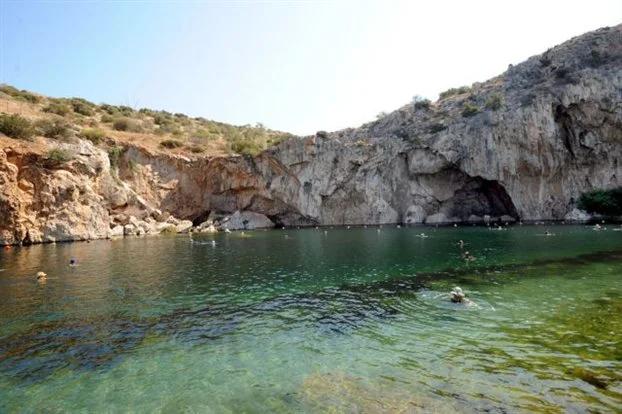European Commission, Press release, Brussels, 27 May 2014:
The water at Europe’s beaches, rivers and lakes was generally of high quality in 2013, with more than 95 % of these sites meeting minimum requirements. Coastal performed slightly better than inland bathing waters, the data shows.
All the bathing sites in Cyprus and Luxembourg were deemed ‘excellent’. These countries were followed by Malta (99 % excellent), Croatia (95 %) and Greece (93 %). At the other end of the scale, European Union Member States with the highest proportion of sites with a ‘poor’ status were Estonia (6 %), the Netherlands (5 %), Belgium (4 %), France (3 %), Spain (3 %) and Ireland (3 %).
The annual bathing water quality report from the European Environment Agency (EEA) tracks the water quality at 22 000 bathing sites across the EU, Switzerland and, for the first time, Albania. Alongside the report, the EEA has published an interactive map showing how each bathing site performed in 2013. Environment Commissioner Janez Potočnik said: "It's good that the quality of European bathing waters continues to be of a high standard. But we cannot afford to be complacent with such a precious resource as water. We must continue to ensure that our bathing and drinking water as well as our aquatic ecosystems are fully protected."
Hans Bruyninckx, EEA Executive Director, said: “Europe’s bathing water has improved over the last two decades – we are no longer discharging such high quantities of sewage directly into water bodies. Today’s challenge comes from short-term pollution loads during heavy rain and flooding. This can overflow sewage systems and wash faecal bacteria from farmland into the rivers and seas.”
Local authorities monitor the samples at local beaches, collecting samples in the spring and throughout the bathing season. Bathing waters are can be rated ‘excellent’, ‘good’, ‘sufficient’ or ‘poor’. The ratings are based on levels of two types of bacteria which indicate pollution from sewage or livestock. These bacteria can cause illness (vomiting and diarrhoea) if swallowed.
Bathing water ratings do not consider litter, pollution and other aspects harming the natural environment. While most bathing sites are clean enough to protect human health, many of the ecosystems in Europe’s water bodies are in a worrying state. This is evident in Europe’s seas – a recent assessment found that Europe’s marine ecosystems are threatened by climate change, pollution, overfishing and acidification. Many of these pressures are set to increase. Bathing water: key findings
-
While more than 95 % of bathing sites met the minimum requirements, 83 % met the more stringent ‘excellent’ level. Just 2 % were poor.
-
The proportion of sites passing the minimum requirements in 2013 was roughly the same as 2012. However, the proportion of ‘excellent’ sites increased from 79 % in 2012 to 83 % in 2013.
-
At coastal beaches, water quality was slightly better, with 85 % of sites classified as excellent. All coastal beaches in Slovenia and Cyprus were classified as excellent.
-
Inland, bathing water quality seems to have been slightly lower than the average. Luxembourg was the only country to receive ‘excellent’ for all its inland bathing sites, with Denmark close behind with 94 % excellent. Germany achieved excellent quality at 92 % of almost 2 000 inland bathing sites.
[europa.eu]
27/5/14





















 GR
GR FR
FR DE
DE ES
ES IT
IT RU
RU EU
EU